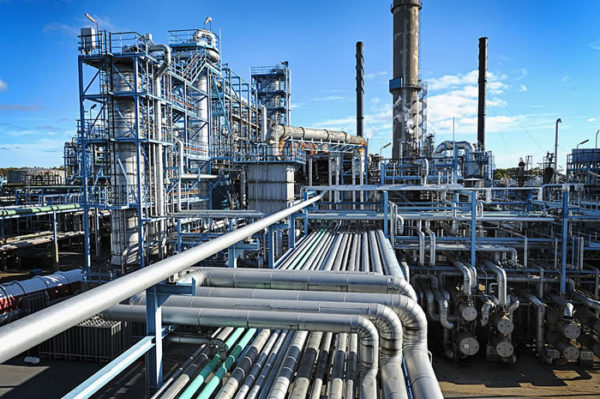Nigeria’s crude oil production rose to 1.71 million barrels per day (bpd) in July 2025, marking a 9.9 per cent year-on-year increase from the 1.56 million bpd produced in the same month of 2024, the Nigerian Upstream Petroleum Regulatory Commission (NUPRC) has disclosed.
In a statement on Tuesday, the regulator said the July output consisted of 1.507 million bpd of crude oil and 204,864 bpd of condensates. “This reflects a 9.9 per cent year-on-year surge from the 1.56 million bpd produced in July 2024, which included 1.33 million bpd of crude oil and 226,866 bpd of condensates,” it said.
Month-on-month, production rose by 0.89 per cent from the 1.69 million bpd recorded in June 2025, comprising 1.505 million bpd of crude oil and 191,572 bpd of condensates, according to the commission.
Breaking down terminal performance, NUPRC data showed that Forcados posted the highest output in July at 9.04 million barrels, a 2.1 per cent rise from 8.85 million in June. The Bonny terminal recorded a 12.7 per cent increase to 8.07 million barrels, up from 7.16 million the previous month.
READ ALSO:Falana Says Proposed Pay Rise For Politicians Insensitive, Ohanaeze Warns Of Public Backlash
In contrast, Qua Iboe production fell to 4.55 million barrels from 5.08 million in June, while Escravos output grew 7.1 per cent to 4.47 million barrels.
Bonga delivered 3.68 million barrels, a 4.2 per cent increase, while Odudu (Amenam Blend) rose 2.9 per cent to 2.12 million barrels. Tulja-Okwuibome output climbed 2.8 per cent to 2.08 million barrels, and Brass surged 27 per cent to 1.12 million barrels, compared with 878,000 barrels in June.
Nigeria’s 2025 federal budget is benchmarked at $75 per barrel and a production target of 2.06 million bpd — a level the government is yet to attain this year.
Meanwhile, the Group Chief Executive Officer of the Nigerian National Petroleum Company Limited (NNPC), Mr. Bayo Ojulari, has warned that crude oil theft in Nigeria is driven by sophisticated international and continental syndicates exploiting security gaps across Africa.
Speaking at the Africa Chiefs of Defence Staff Conference in Abuja on Tuesday, Ojulari said: “Crude theft and its attendant illegal activities are by no means a purely localised occurrence; rather, these operations involve specialised international syndicates that take advantage of gaps within the state, national and continental security architecture to conduct illegal activities.”
He, however, stressed that crude theft and pipeline vandalism in Nigeria’s Niger Delta have been significantly curtailed due to the efforts of security agencies.
“Security forms a key pillar of the energy business and therefore plays a very important and strategic role in achieving national, regional and continental energy security goals,” Ojulari said. “As head of the largest national oil company on the continent, we have seen the benefit of the collaboration within the energy space, with significant improvement in our operating environment.”
According to him, the impact of theft and vandalism has reduced drastically. “The dilapidating impact of crude theft, low pipeline availability and attacks are issues that have become stories of the past for us. These have come from the immense and intentional efforts of our government agencies across the nation and, in particular, within the Niger Delta.
“Today, I can proudly report to you all that our pipelines and terminals’ receipt of crude oil, which was somewhere as low as 20 per cent to 30 per cent, (is] attaining close to 100 per cent due to the support of the security forces and the intelligence agencies,” he said.
Ojulari further urged that continental forums such as the Abuja gathering be strengthened to deepen strategic collaboration across Africa.










